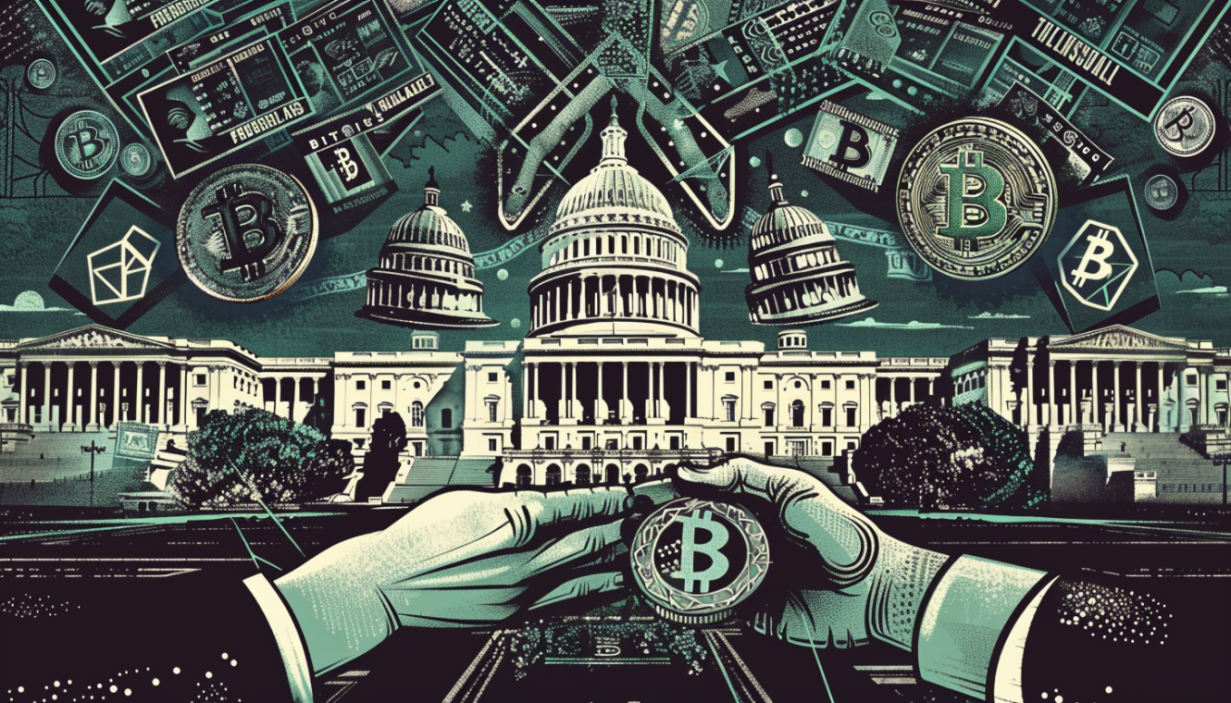US Politicians Gradually Shift Toward Crypto
By Olivier Acuña | TH3FUS3 Chief Editor
June 5, 2024 12:09 PM
Reading time: 2 minutes, 51 seconds
TL;DR The US political sector shows signs of shifting its stance towards the crypto industry. Bitwise's Chief Investment Officer (CIO), Matt Hougan, believes this evolving attitude could bring the crypto market to new all-time highs. Several Democrats and Republicans appear to agree on embracing crypto.

A Political Shift in Crypto
U.S. politicians from the Democratic and Republican parties are increasingly changing their stance on crypto, becoming gradually friendlier toward the sector. Bitwise's Chief Investment Officer (CIO), Matt Hougan, believes this change of heart could send the crypto market to new all-time highs.
Despite the lack of widespread attention outside the crypto community, this political shift may present a significant opportunity, or 'alpha,' for investors. Alpha is a term in the crypto market that refers to information that has the potential to give a trader an edge and outperform the market.
Legislative Actions
Hougan remarks that a shift started on May 8, when the House voted for H.J. Res. 109, repealing Staff Accounting Bulletin No. 121 (SAB 121), the U.S. Security and Exchange Commission (SEC) rule that prevents large banks from custody of crypto assets.
This bipartisan support extended to the Senate. Although President Joe Biden vetoed the bill, this passage marked the first positive legislative action for crypto in U.S. history.
The FIT21 Bill
The U.S. House of Representatives voted in favor of a comprehensive crypto bill that grants the Commodity Futures Trading Commission (CFTC) primary oversight over the digital assets industry.
However, both SEC Chair Gary Gensler and President Joe Biden expressed their opposition to the FIT21 bill.
This momentum continued with the SEC approving filings for spot Ethereum (ETH) exchange-traded funds (ETFs). The decision is surprising, given Gensler's stance toward the FIT21 bill. The approval, however, came with the condition of removing staking aspects.
Potential Market Growth
Hougan sees the overall positive shift in Washington's attitude holds significant potential for growth. He thinks regulatory uncertainty has been a substantial barrier for financial advisors managing an estimated $20 trillion in wealth.
According to Bitwise, 64% of advisors cited this uncertainty as the primary reason for limited crypto exposure in their portfolios.
'Imagine, then, how much of that $20 trillion will go into crypto when the biggest barrier gets lifted,' Hougan outlined.
Furthermore, Hougan uses central Wall Street banks, such as The Bank of New York, Nasdaq, and State Street Bank, as examples. Due to regulatory concerns, he notes that these banks must be bolder and quick to enter the crypto space. However, with regulatory clarity, they could fully embrace crypto, significantly boosting the market.
Political Influence and Elections
Experts believe the upcoming election heavily influences the Biden administration's changing stance towards the crypto industry. BeInCrypto reported that several key industry figures have urged the community to support pro-crypto candidates.
Major entities, including Ripple and Coinbase, have shown their support by donating significantly to Fairshake, a digital assets-friendly Super Political Action Committee (PAC). With such movements increasing, the crypto community has a unique opportunity to influence the political environment.
Moreover, former President Donald Trump, who was also running in the presidential election, has strategically targeted crypto-focused campaigns.
Trump expressed his comfort with crypto and accepted donations for cryptocurrency. He also pledged a more welcoming approach to the industry, criticizing current U.S. regulatory measures as hostile. Ultimately, he urged those who favor crypto to vote for him.
Despite the gap between the two major candidates, Grayscale's report shows that crypto is bipartisan, with similar ownership rates among Republicans (18%) and Democrats (19%).
Voters are split on which party is more favorable to the industry. Thirty percent believe the Democratic and Republican parties have the most favorable positions on crypto policies, suggesting a balanced interest across the political spectrum.



